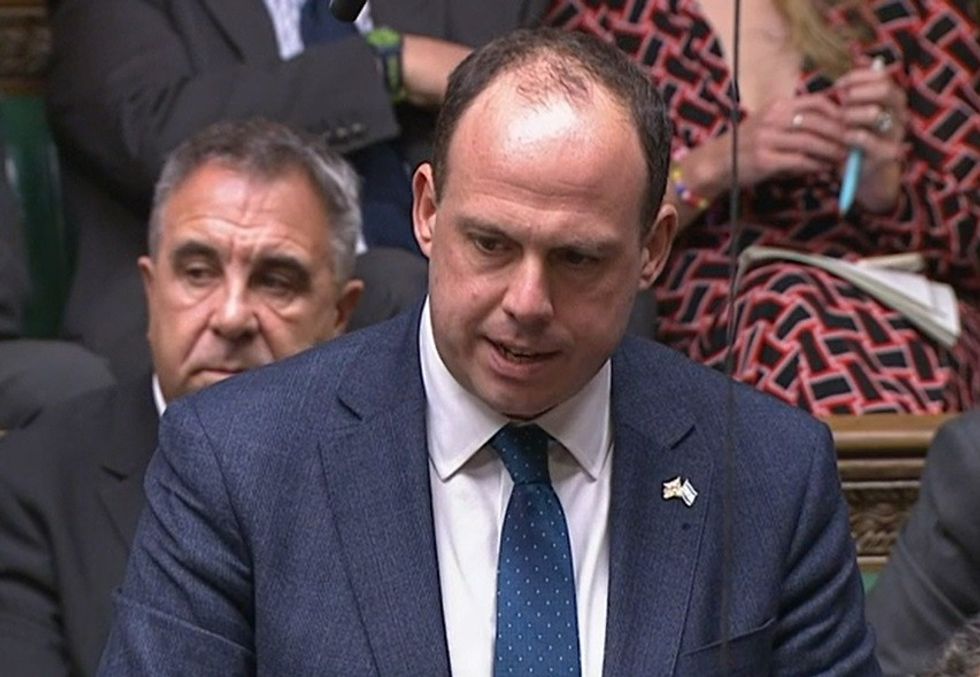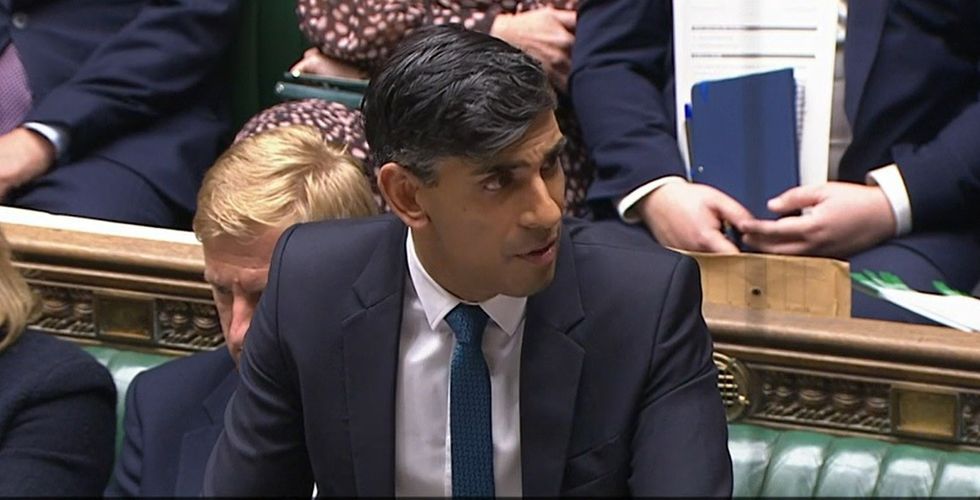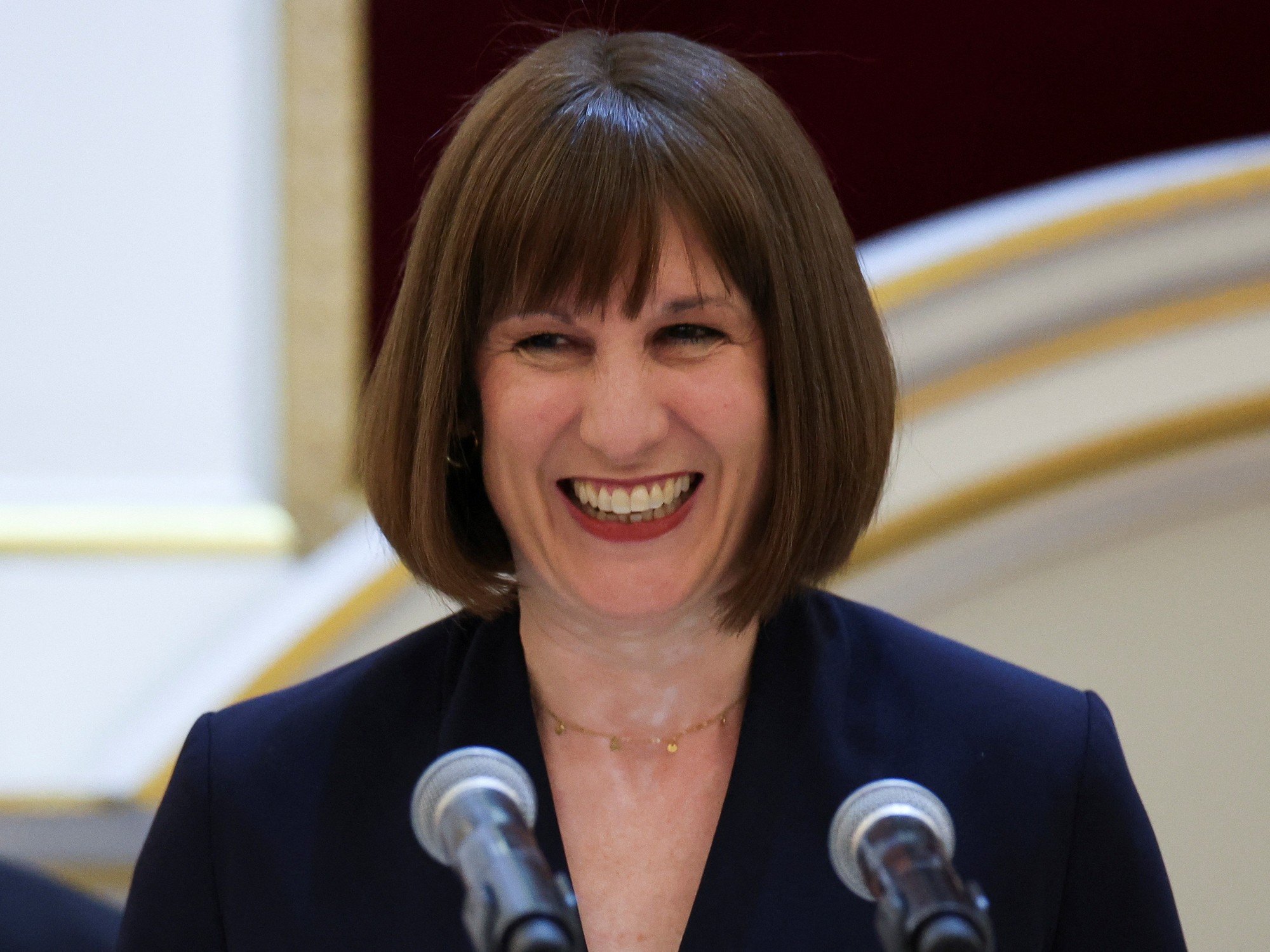Chancellor Jeremy Hunt extended Rishi Sunak’s personal allowance and higher rate tax threshold freeze until 2028
Don't Miss
Most Read
Trending on GB News
A Conservative Party MP has piled pressure on Prime Minister Rishi Sunak to end the six-year freeze to the higher rate tax threshold, a policy which will drag more and more working families into the 40 per cent income tax net.
Speaking during Prime Minister's Questions today, Greg Smith, the Conservative MP for Buckingham, pointed out that police officers, nurses and teachers, could become higher rate taxpayers due to the freeze.
The personal allowance and higher-rate thresholds of income tax will be frozen at 2021/22 levels of £12,570 and £50,271 until 2028.
Known as fiscal drag, the freeze means taxpayers will pay more to HMRC as their income rises with inflation over the years.

Greg Smith brought up the higher tax rate band during Prime Minister's Questions
PARLIAMENT
People earning a £50,000 salary in 2022 are due to pay £1,967 extra tax by 2027, compared to if the thresholds increased with inflation, according to research by interactive investor.
Mr Smith said: “The inflation numbers this morning were very welcome but the tax burden continues to bite.
“Will the Prime Minister agree in principle with me that the concept of higher rate tax was never meant to drag in police sergeants, band eight nurses, teachers with additional responsibilities, and others, and that a priority for his Treasury ministers should be to return fairness to the tax thresholds?”
Mr Sunak replied: “I agree with the Honourable Gentleman, and I am pleased that the vast majority of people will continue not to pay the higher rate. I share his ambition to cut taxes for working people.
“Right now, inflation is falling and we are sticking to our plan which is delivering a halving of it this year, because that is the most effective tax cut that we could have delivered for the British people this year, rather than making it worse as the party opposite would, borrowing money in a way that would be irresponsible and just drive up inflation and interest rates.
“But I want to reassure him that I absolutely share his ambition to cut taxes for working people, and as we stabilise the economy, that’s something that both the Chancellor and I are keen to deliver.”
Inflation has fallen to the lowest level in two years, with the slowdown coming after energy prices soared last year.
Middle and low earners are also set to be affected by frozen tax thresholds, with those on a £20,000 or £30,000 salary in 2022 due to pay £889 in extra tax by 2027, compared to if the thresholds increased in line with inflation.
Alice Guy, Head of Pensions and Savings at interactive investor said fiscal drag was a "silent and ruthlessly efficient way of raising the tax burden over time".
She added: "It works by freezing tax thresholds so that we pay tax on more and more of our income as our wages rise with inflation.
"It’s less obvious than raising tax rates, but potentially has an even bigger impact on taxpayers over time.
LATEST DEVELOPMENTS:

Prime Minister Rishi Sunak froze the personal allowance and higher rate income tax thresholds with Chancellor Jeremy Hunt extending the freeze
PARLIAMENT
"Frozen tax thresholds affect all of us, not just higher earners, because the frozen personal allowance means even lower earners gradually pay tax on more of their income."
Ms Guy pointed out fiscal drag could potentially be "even more painful" to parents as they could also lose Child Benefit as their wages rise with inflation, due to the frozen threshold for the High Income Child Benefit Charge, which hasn't increased from £50,000 since it was first introduced in 2013.
How you could avoid fiscal drag
The pensions and savings expert added: “If you can afford to then, one of the best ways to minimize your tax bill is to pay more into your pension.
"Pension payments receive tax relief, meaning you can claw back any income tax paid on your contributions as the taxman will pay tax relief straight into your pension. This means it only costs £80 to pay £100 into your pension and £60 to pay in £100 for higher rate taxpayers.
“Some employers also offer salary sacrifice which means you can pay your salary directly into your pension, with no tax at all being charged.
"This is a great option, as you’ll save on national insurance as well as income tax, meaning it will only cost £68 to pay £100 into your pension for basic rate taxpayers and £58 to pay in £100 for higher rate taxpayers.”
The ongoing freeze will take the personal allowance, which remains at £12,570, back to its 2013/14 level, according to the Office for Budget Responsibility (OBR).









